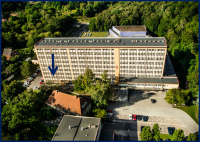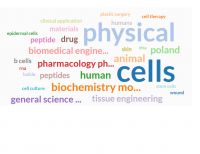Division of Embryology
Department of Anatomy
THE LAB. OF TISSUE ENG. AND REGENERATIVE MEDICINE
In the Laboratory of Tissue Engineering and Regenerative Medicine at the Department of Embryology at the Medical University of Gdańsk, research on new biologically active compounds, biomaterials and stem cells, as well as epigenetic ad tissue regeneration are carried out.
Tissue engineering is a relatively new branch of science based on biotechnology, molecular biology, nanotechnology and related sciences. The tissue engineering triad includes three main elements: cells, scaffolds and growth factors. Finding an appropriate combination of these elements enables the creation of an advanced medicinal product for a number of clinical applications. Thanks to its translational nature, tissue engineering constitutes the basis of regenerative and personalized medicine today.
Our research currently focuses on stem cells (mainly skin and adipose-derived stem cells), biologically active peptides (pro-regenerative and immunoregulatory) and epigenetic mechanisms of the regeneration and activity of the immune system.
MORE DETAILS ON OUR WEBSITE: medreg.mug.edu.pl
Contact:
Prof. Michał Pikuła, MSc, PhD
Full Professor, Deputy Director of the First MUG Doctoral School
Laboratory of Tissue Engineering and Regenerative Medicine
Department of Embryology, Faculty of Medicine
Medical University of Gdansk (MUG)
80-210 Gdansk, Poland
Tel. 0048 58 3491368
E-mail: pikula@gumed.edu.pl
ORCID: 0000-0001-7751-9781www.medreg.mug.edu.pl

